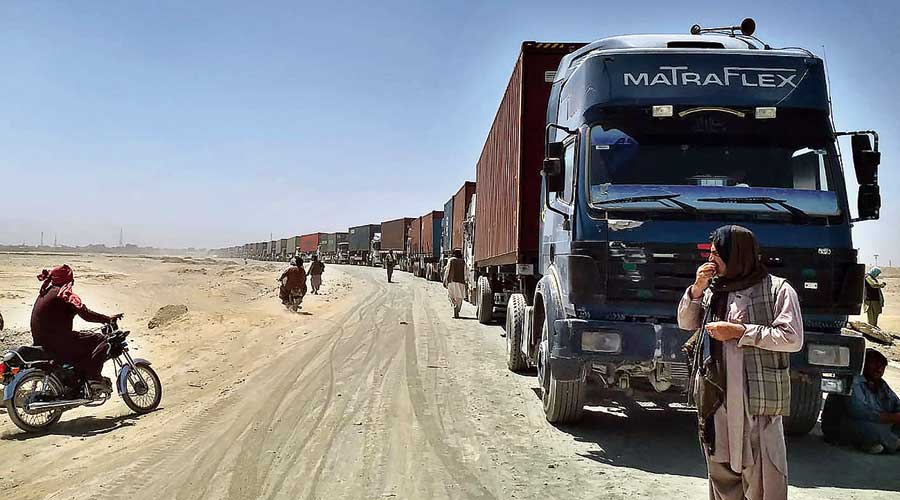As the Taliban attempt the precarious shift from insurgent movement to functioning government, Afghanistan is facing the heightened risk of a financial collapse after being propped up for the past two decades by foreign aid that now accounts for nearly half its legal economy.
The fate of the Afghan economy will be determined by decisions that the Biden administration and other countries must make on whether to recognise the Taliban as a legitimate government.
In the meantime, the US and the international community are already shutting the flow of money, leaving Afghanistan in the stranglehold of sanctions that were designed to cut the Taliban off from the global financial system. Analysts say the looming shock threatens to amplify a humanitarian crisis in a country that has already endured years of war.
Signs of strain were evident this week as the value of Afghanistan’s currency, the afghani, plunged to record lows and the nation’s most recent central bank governor, Ajmal Ahmady, warned that inflation would likely send food prices soaring. The US, which has poured about $1 trillion into Afghanistan over 20 years, moved to block the Taliban’s access to Afghanistan’s $9.4 billion in international reserves. And the IMF suspended plans to distribute more than $400 million in emergency reserves to the country.
“In the short term, it’s potentially catastrophic,” said Justin Sandefur, a senior fellow at the Center for Global Development.
“You’re looking at the possibility of the currency collapsing and a financial crisis that could inflict real pain on normal people.”
Afghanistan’s economy was facing severe challenges, and international support was starting to wane, even before the Taliban takeover.
The pullout over the last year of American forces and government contractors that contributed to Afghanistan’s tax base sapped revenue when the country, like much of the world, was coping with the coronavirus pandemic. The Congressional Research Service noted this year that 90 percent of Afghanistan’s population lived on less than $2 a day and warned that the loss of American support would weaken one of the world’s smallest economies.
In late 2020, foreign donors meeting in Geneva pledged $12 billion in aid to Afghanistan over the next four years, a 20 per cent decline from the previous four years. Some of the aid agencies based new conditions for the money on human rights advances and progress with peace talks between the government and the Taliban.
Concerns about food insecurity are mounting, and a looming drought is expected to make matters worse.
Much foreign aid, which accounts for half of the Afghanistan economy, is at risk as the international community decides whether to recognise the Taliban as legitimate.
“The withdrawal of U.S. troops or reductions in international grant support to the Afghanistan security forces would have a range of unpredictable impacts on security, political cohesion and the economy,” the World Bank wrote in its Afghanistan Development Update, published in April. “Fiscal space remains tightly constrained in the context of weakened revenue performance and declining international grants.”
Although Afghanistan’s budget deficit has been relatively low as a share of its economy, the World Bank warned that the country was at “high risk of external and overall debt distress”.
New York Times News Service











